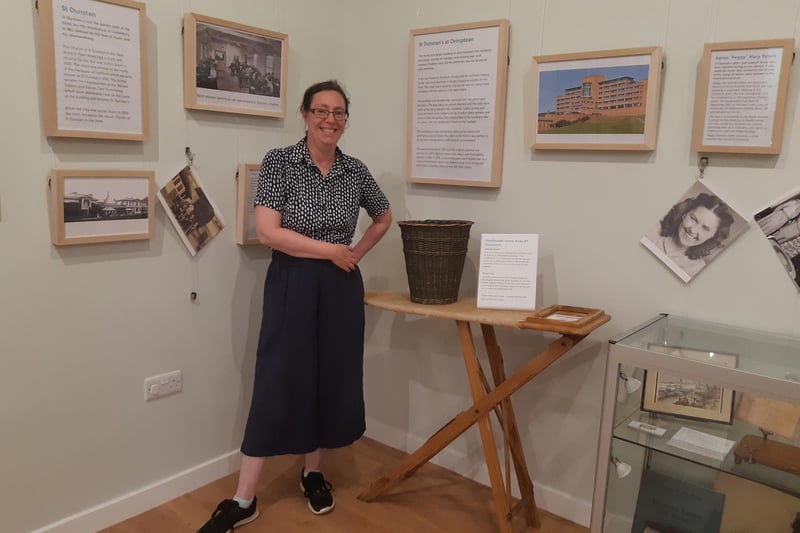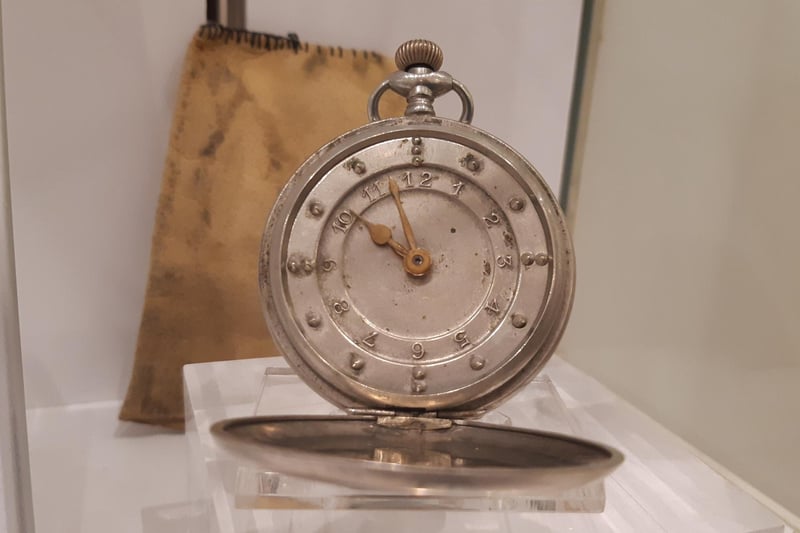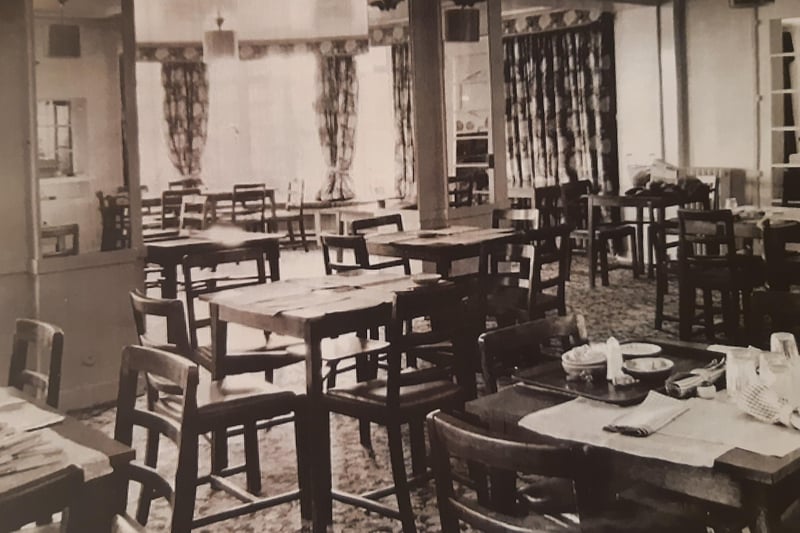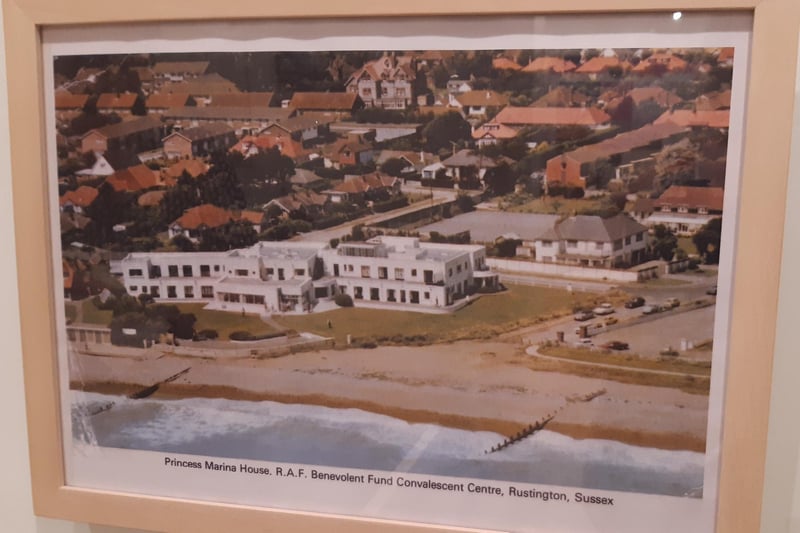Its origins are explained and detailed information is displayed alongside some fascinating original objects, like the pocket watch given to First World War veteran Harry Pottage after he was blinded in combat and a braille machine adapted for use with steel fingers by Second World War veteran David Bell.
Claire Lucas, museum manager, said: "It is the whole story of the building because people want to know all about it. It has always had its purpose and that is what I love about it.
"The exhibition starts with the start of the building and the Newton Driver Services Club, then it goes into how it got given to the RAF Benevolent Fund and then a history of Blind Veterans UK, their first place in London, the centre that was purpose-built in Brighton and a little bit about them looking forward to moving to Rustington.
"We have photos from members of the public, newspaper cuttings, original objects from St Dunstan's and a painting by a blind veteran. There is also an ironing board made at St Dunstan's, with the original label on it. The idea was they made useful objects, like baskets and trays. I had a phone call about it only a couple of weeks ago and after the exhibition, the archivist from the charity will have it in their collection."
The building began as a club offering respite for veterans after the Second World War. Mrs Henrietta Muriel Newton-Driver had opened the English Speaking Officer's Club in Park Lane, London, for RAF officers to relax during the war and then saw the need for respite for veterans after the war, deeming Rustington to be the ideal location.
Claire said: "In 1948, Mrs Newton-Driver opened the club in Rustington as a respite for RAF veterans to help care for their needs, and also for serving personnel and their families, as a break from service life.
"She sold all of her possessions to set up the new establishment at Rustington. Mrs Newton-Driver is an interesting lady. We don't know much about her at all. It is thought her husband was in the RAF."
Bookings opened on November 17, 1948, and Prince Philip officially opened the club on April 23, 1949. Claire is proud to be able to include candid shots from the occasion in the exhibition.
The RAF Benevolent Fund was founded in 1919 by Lord Trenchard and Mrs Newton-Driver was a lifelong supporter. For its Golden Jubilee in 1968, she handed over her club and the following year, she presented a cheque for £100,000 in memory of her husband, Newton Graeme Driver, who had died in 1937.
The charity renovated the building and changed the name to Princess Marina House in 1969 in memory of its long-serving president, the Duchess of Kent, who had died the previous year.
Since then, there have been threats from redevelopment but these have been fought off and in fact a new extension was opened by the Duke of Kent in 2007. The museum has a DVD of the visit in the exhibition and this can be viewed on the interactive table.
Two years ago, Blind Veterans UK agreed a deal that would see Princess Marina House continue to offer support to the military community, albeit in new ways and for a different group of veterans. It will become the charity's new south coast home and all residents will be moved from its iconic but now unsuitable centre in Ovingdean.
Claire said: "The support Blind Veterans UK gives to its benefactors now is very different to when it started and the average age of veterans the charity supports is rising. The site at Ovingdean was also showing its age.
"The Princess Marina site was beginning to see a decline in the number of veterans and their families visiting, which was not helped by the impact of Covid-19. The building was not being used anywhere near full to capacity, which put strains on its financial situation.
"The residents and those who used the house were found alternative accommodation and places to stay through the pandemic and after.
"When the site was put up for sale, it was brought to the attention of Blind Veterans UK, who were considering a new site. Ovingdean, despite the views, was isolated from the town and limited the places for residents and their visitors to walk to.
"It is, therefore, fortuitous that the Princess Marina site will continue to support a charitable purpose. Blind Veterans UK are adapting and updating the site for the new residents with state-of-the-art facilities."
A bench and other tributes to Mrs Newton-Driver have been preserved by the RAF Benevolent Fund and moved to a Garden of Remembrance.

1. Princess Marina House exhibition
Rustington Museum manager Claire Lucas with the ironing board made at St Dunstan's, the original name for Blind Veterans UK Photo: Elaine Hammond

2. Princess Marina House exhibition
The pocket watch given to Harry Green, who was blinded in the Battle of the Somme and came to St Dunstan's soon after Photo: Elaine Hammond

3. Princess Marina House exhibition
Inside the Newton Driver Services Club, which offered respite for RAF veterans and for serving personnel and their families, as a break from service life Photo: Elaine Hammond

4. Princess Marina House exhibition
Aerial photograph of Princess Marina House Photo: Elaine Hammond